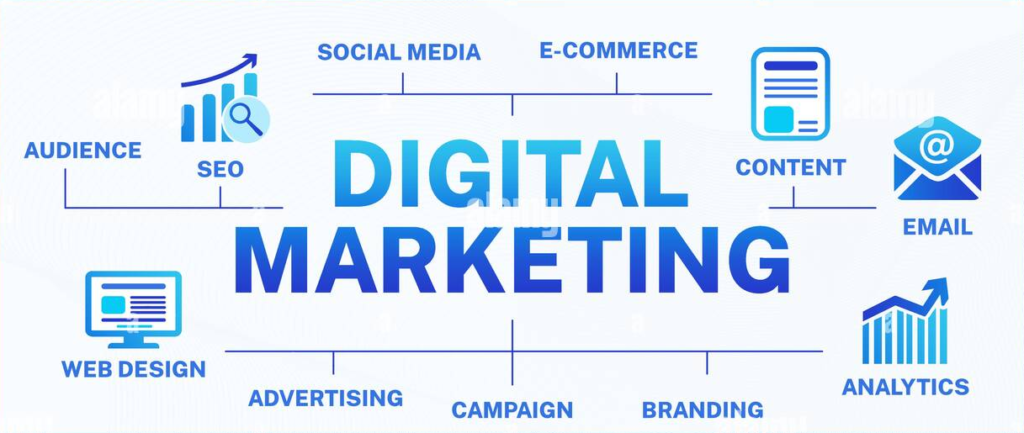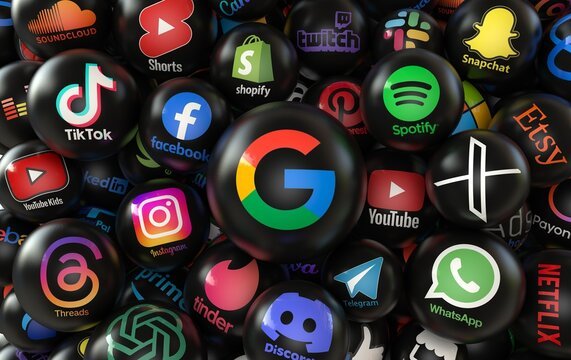How to Plan Your Digital Marketing in 2025
Digital marketing continues to evolve at a rapid pace, and 2025 promises to bring even more opportunities and challenges for businesses. As technology advances and consumer expectations shift, marketers must adopt strategic approaches to stay competitive. Here’s a comprehensive guide on how to plan your digital marketing strategy for 2025.
1. Assess the Current Landscape
Before diving into planning, analyze the existing trends, tools, and technologies shaping digital marketing. Key trends in 2025 include:
AI-Driven Marketing: Automation, chatbots, and predictive analytics are dominating marketing strategies.
Voice and Visual Search: Consumers are relying more on voice commands and image-based searches.
Personalization at Scale: Hyper-targeted campaigns fueled by AI and data analytics.
Video Marketing Growth: Short-form videos, live streams, and interactive videos remain highly engaging.
Sustainability and Ethics: Consumers prioritize businesses with ethical practices and sustainable approaches.
2. Set Clear Goals
Define what you want to achieve with your digital marketing efforts. Common goals include:
Increasing brand awareness.
Generating high-quality leads.
Boosting conversion rates.
Enhancing customer engagement.
Building thought leadership.
Use the SMART framework (Specific, Measurable, Achievable, Relevant, Time-bound) to ensure your goals are actionable.
3. Understand Your Audience
Consumer preferences evolve, and so should your understanding of your target audience. In 2025, leverage advanced tools such as:
AI-Powered Analytics: Tools like Google Analytics 4 and HubSpot provide detailed customer insights.
Social Listening Tools: Platforms like Brandwatch monitor trends and conversations.
Behavioral Segmentation: Group audiences based on browsing patterns, purchase history, and preferences.
Develop detailed buyer personas to tailor campaigns effectively.
4. Optimize for Emerging Technologies
Artificial Intelligence and Machine Learning
AI-driven marketing automation tools can optimize ad placements, personalize content, and improve user experiences.
Voice Search Optimization
Ensure your content is optimized for conversational keywords and question-based queries, as voice search becomes mainstream.
Augmented Reality (AR) and Virtual Reality (VR)
Incorporate AR and VR experiences for interactive ads and virtual product demonstrations.
Blockchain for Transparency
Blockchain technology ensures transparency in ad tracking, combating fraud and building trust with customers.

5. Create a Multi-Channel Strategy
Diversify your approach by integrating multiple channels:
Social Media Marketing: Prioritize platforms like TikTok, Instagram Reels, and LinkedIn.
Content Marketing: Develop blogs, e-books, and case studies to establish authority.
Email Marketing: Focus on personalized email sequences and automation.
Influencer Partnerships: Collaborate with niche influencers to expand reach.
SEO and SEM: Stay updated with search engine algorithms to maintain visibility.
6. Focus on Content Creation and Storytelling
Content remains king, but in 2025, the focus is on storytelling and value-driven content. Tips for effective content creation:
Use interactive formats such as quizzes, polls, and surveys.
Incorporate user-generated content to build authenticity.
Develop video-first strategies for platforms like YouTube and TikTok.
Optimize for micro-moments—short bursts of attention in mobile searches.
7. Invest in Data Analytics and Measurement Tools
Track performance and ROI with the latest tools:
Google Analytics 4 for predictive insights.
CRM platforms like Salesforce and HubSpot for sales tracking.
Heatmaps and session recordings to analyze user behavior.
A/B testing tools to optimize campaigns in real time.
8. Prioritize Privacy and Compliance
With evolving privacy laws like GDPR and CCPA, ensure your campaigns comply with regulations. Key practices include:
Using cookie-less tracking solutions.
Implementing data encryption and secure data storage.
Being transparent about data collection and usage.

9. Budget and Resource Allocation
Evaluate your marketing budget based on past performance and future goals. Allocate resources across channels effectively:
Paid Advertising: PPC, social ads, and retargeting campaigns.
Organic Growth: SEO, content marketing, and community building.
Tools and Software: Marketing automation and data analytics tools.
10. Test, Optimize, and Iterate
Digital marketing success depends on continuous testing and optimization. Follow these steps:
Conduct A/B tests for ads, emails, and landing pages.
Analyze key performance indicators (KPIs) regularly.
Gather feedback through surveys and customer reviews.
Adapt strategies based on real-time data and insights.

Digital marketing in 2025 is all about adaptability, personalization, and leveraging cutting-edge technologies. By setting clear goals, understanding your audience, embracing AI and data analytics, and staying compliant, you can create impactful campaigns that drive growth. Start planning today and position your brand for success in the ever-changing digital landscape. To Hire an Expert you can visit our website : www.vortixai.com


